Christians love to sing and talk about redemption and forgiveness, but strangely, few Christians really know what the Bible teaches about these two topics. We look at both terms in this study of Ephesians 1:7-8. Though we are redeemed by the blood of Jesus, this does not mean that the blood of Jesus was used to pay God for our sins. God does not need to be paid off. He is not the mafia who demands payment for protection. Instead, the redemption of Jesus shows us how to live free from sin, which is what the forgiveness of God shows us as well. Listen to this study on Ephesians 1:7-8 to learn more.
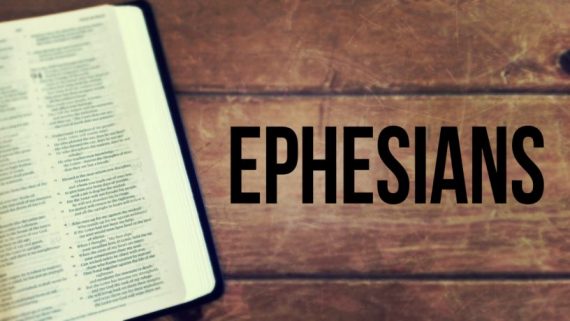
Current Event: Critical Race Theory
We’re discussing some of the content in the best-selling book, (#AmazonAdLink) FaultLines, by Voddie Baucham Jr. In this book, Dr. Baucham discusses Critical Race Theory and shows why it is so destructive, not only to our culture, but also to the church. We introduced the book and defined Critical Race Theory in a previous episode.
(#AmazonAdLink) 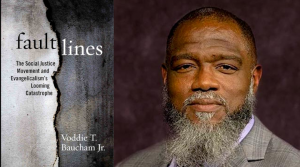 In chapters 1 and 2 of Faultlines, Voddie Baucham shares some of his story about growing up as a black man in America, how he became a Christian, and why he ended up moving to Zambia to teach and minister there. He also explains how he became aware of Critical Race theory and how he arrived at his view that CRT is so destructive to the gospel and damaging to the church.
In chapters 1 and 2 of Faultlines, Voddie Baucham shares some of his story about growing up as a black man in America, how he became a Christian, and why he ended up moving to Zambia to teach and minister there. He also explains how he became aware of Critical Race theory and how he arrived at his view that CRT is so destructive to the gospel and damaging to the church.
Chapter 3 is so good, I wish I could read to you the entire chapter. In it, Dr. Baucham completely exposes and obliterates the false narrative that exists in our country (and sadly in many of our churches) that black people are getting hunted down and killed by police, that it is “open season” on black people, and that the murder of unarmed black people is “state sanctioned.” Near the beginning of this chapter (p.44), he says the following:
… When I am evaluating people’s testimonies and pleas, and when people are shouting “Justice for George, Ahmaud, Breonna, Travon!” or anyone else, I always want to bear in mind the words of John 7:51: “Does our law judge a man without first giving him a hearing and learning what he does?” I also want to remember that “the one who states his case first seems right, until the other comes and examines him” (Proverbs 18:17), which is why “if one gives an answer before he hears, it is his folly and shame (Proverbs 18:13).
Following this, Dr. Baucham goes on to examine the deaths of George Floyd, Tamir Rice, Philadro Castile, Michael Brown, and Breonna Taylor, to show that much of what is chanted and repeated in riots, news broadcasts, and even from some pulpits, was flat-out wrong.
Dr. Baucham also goes on to point out that despite all the news attention that is given to the deaths of these black people, there are far more examples of deaths of unarmed white people at the hands of the police, and some of them are far worse. For example, have you heard of Tony Timpa? Probably not. He was a thirty-two year old schizophrenic who called the police on himself because he went off his meds and needed help. Like George Floyd, Timpa was handcuffed, and for nearly fourteen minutes pleaded with the officers, saying, “You’re gonna kill me! You’re gonna kill me!” But the police only mocked him and made jokes. But eventually, Tony Timpa did die, and no officers were charged or convicted (pp. 54-56). Why not? Because Tony Timpa was white and his death doesn’t fit the narrative. Few even know his name. And Tony’s case is not alone. There are many others just like him.
Dr. Baucham knows that one common objection to this is that even though unarmed white people die in far greater numbers than unarmed black people, this is because black people only make up 13% of the population, and so when this is factored into the equation, black people die in higher proportion. Baucham completely dispels this myth as well, and shows that the only reason people skew the statistics to make this claim is because they have an agenda to create division and strife in our country, because this false narrative helps them gain money, power, and control.
But I’ve spent too much space on this already, so I encourage to (#AmazonAdLink) read the book to find out more about what Baucham says. As instructed by Proverbs 18:17 (one of my life verses, by the way), stop listening to one side of the issue, and instead consider both sides before making a decision.
A Letter from A Listener
I have been wondering about the nature of hell for a while. I’m a former Christian and for years I didn’t fear the idea of hell. Perhaps now as I’ve gotten older and I realize I’m not immortal the fear of potentially going to hell scared me. However, I don’t think someone should come back to Christianity because of fear of hell. That is assuming hell is a place of torture. I have been thinking about Christianity again but still have some objections. What does the hell course discuss?
I have written (#AmazonAdLink) a book about hell, and also have an online course about hell that is based on the content of the book. When you take the course, you can download the book for free.
(#AmazonAdLink)  The book begins with a history of hell, and why we believe it is a place of suffering and torment. The book then considers several of the Hebrew and Greek words that sometimes get translated as “hell” in our English Bibles. Words such as Gehenna, Hades, and Tartarus, as well as the concept of “outer darkness” and “lake of fire” are all considered. Following this, I provide in-depth explanations of many key biblical passages that are often thought to be referring to hell. The book concludes with an explanation of what I believe the Bible teaches about hell.
The book begins with a history of hell, and why we believe it is a place of suffering and torment. The book then considers several of the Hebrew and Greek words that sometimes get translated as “hell” in our English Bibles. Words such as Gehenna, Hades, and Tartarus, as well as the concept of “outer darkness” and “lake of fire” are all considered. Following this, I provide in-depth explanations of many key biblical passages that are often thought to be referring to hell. The book concludes with an explanation of what I believe the Bible teaches about hell.
I do not end up in any of the three major positions about hell. The three common views of hell are (1) annihilationism – that people might go to hell for a while, but are ultimately destroyed so that they do not suffer forever, (2) Universalism – the view the people might go to hell for a while, but will eventually be able to escape hell and spend eternity with God, and (3) infernalism – the view that hell is a place of eternal conscious torment for the damned, where they will suffer and burn for all eternity.
I explain and reject all three views in my book.
My view – and this may be a shock to you – is that when the Bible teaches about hell, it is referring to the current experience of some people on this earth now. When the Bible exhorts us to deliver and rescue souls from hell, it is not telling us to make sure people don’t go the burning place after they die, but to go out and rescue people from how their life is being destroyed right now.
Whether you are skeptical of that view, or find it attractive, I encourage you to read my book or take my course to discover how I arrive at that conclusion.
By the way, if you go to Amazon and see that the book has some negative reviews, this is because there are many Christians who leave negative reviews of books without even reading the books. I have read the negative reviews, and it is obvious that they never even read the book. They claim I am teaching and saying things in the book that I never say. So anyway, do your own research. (#AmazonAdLink) Read the book to discover a love-based, grace-oriented approach to all the biblical texts in the Bible about hell.
Redemption and Forgiveness (Ephesians 1:7-8)
Ephesians 1:3-14 is one long sentence in the Greek language, and it contains a long list of some of the great riches and blessings we have in Jesus Christ. We’ve looked at some of these already, such as Election, Predestination, and Adoption. In Ephesians 1:7-8, Paul lists two more blessings: Redemption and Forgiveness.
Ephesians 1:7-8. In Him we have redemption through His blood, the forgiveness of sins, in accordance with the riches of God’s grace that He lavished on us with all wisdom and understanding.
Let us consider both key terms:
1. Redemption through His blood
The first term to consider is redemption.

In our study on adoption, I explained that when God adopts us as His sons, He is taking his own children, and adopting them as heirs.
Redemption is a similar idea. Redemption occurs when God takes something that was already His, and is buying it so that it is twice His. In the ancient world, when a soldier was captured in battle, his country could buy him back from the enemy. Or, when a family was in a desperate financial situation, sometimes they would sell one of their family members into slavery, and then—hopefully—when they got enough money, they would buy back their family member (Lev 25:39-55).
We can do the same thing today with pawnshops, except we do it with possessions rather than family members. If you need money, you can go down to the pawn shop and they will give you money for your watch or a ring, and you then have a certain amount of time to go back and redeem your item. If you do not, then they keep it and can sell it for a profit.
So we see here that Jesus redeemed us, or bought us back, through His blood.
But there is an important concept here to understand. When Paul writes about Jesus redeeming us through His blood, we shouldn’t think that Jesus was paying off God or Satan with His blood. It is not as though there was a debt of sin to God or to Satan which could only be paid with the blood of Jesus. Lots of Christians teach this, but it is not a biblical idea. God does not and has never required blood sacrifice or blood payment as a way to forgive us for our sins. Not even Hebrews 9:22 teaches this.
 The redemption that Jesus accomplished through His blood was a rescue or deliverance of humanity from humanity. We were enslaved to an endless cycle of sacred violence and the spilling of blood in God’s name, and Jesus, by dying as He did, exposed the myth of redemptive violence and the lies of sacred violence for what they were so that we can be redeemed or rescued from this endless cycle of violence and bloodshed once and for all. I explain this idea further in my Gospel Dictionary course in the entry on Blood.
The redemption that Jesus accomplished through His blood was a rescue or deliverance of humanity from humanity. We were enslaved to an endless cycle of sacred violence and the spilling of blood in God’s name, and Jesus, by dying as He did, exposed the myth of redemptive violence and the lies of sacred violence for what they were so that we can be redeemed or rescued from this endless cycle of violence and bloodshed once and for all. I explain this idea further in my Gospel Dictionary course in the entry on Blood.
So when you think about redemption, think of it as Jesus buying us back from our slavery to sin. His blood shed for us was not actually “paid” to anyone, but was instead shed for us to show us that we kill other people in God’s name. His shed blood for us was to show us what we do and to call us to stop it. Yes, Jesus needed to shed His blood, but not so that He could pay off God. God is not a mafia boss who needs to be paid for His protection. Jesus shed His blood to show us the truth about ourselves that could not be shown to us in any other way. (see my book (#AmazonAdLink) Nothing but the Blood of Jesus for more on this).
Redemption shows us how to no longer be slaves to sin, and instead becomes friends with God. We have been redeemed from slavery to sin, and set free to love and serve God with our lives. So that’s redemption.
This idea is further seen by what Paul says next in Ephesians 1:7.
2. The forgiveness of sins.
There is so much confusion in Christian circles about forgiveness. But as I have pointed out in my Gospel Dictionary course, in my book The Atonement of God, and in numerous other places, there are two main types of forgiveness sin the Bible.

The first is charizomai forgiveness. It is free and unconditional. God extends this forgiveness to all people in all the world for all their sins no matter what. It has been freely extended from the beginning of time simply because God is a loving and forgiving God. Jesus did not have to die to earn this forgiveness. God does not demand blood sacrifice to offer this forgiveness. It is free and unconditional, based solely on the grace of God.
The second type of forgiveness is aphesis forgiveness. But it is not really what we think of when we think of forgiveness. It is closer to the idea of release, or liberation. It is the type of release or liberation we get when we gain freedom from the damaging and destructive power of sin in our lives. This type of forgiveness does have conditions. We must confess and repent and forgive others in order to experience this kind of forgiveness in our lives.
What type of forgiveness is Paul referring to here?
It is aphesis forgiveness.
Paul is talking about how we can experience the riches and blessings of being in the family of God, and how God seeks to unify us into one family, and how we can live for the praise of His glory. While all of these things are riches of God’s grace, they also are conditional upon our living in light of them. Of understanding what we have in Christ and how to access and use these blessings.
So this makes sense that aphesis forgiveness is in view, because we must know how this form of forgiveness works and how to make use of it in our lives.
 Even though God has freely forgiven us (charizomai), for all our sins, we still sin and need to be set free from our slavery to sin. This is where aphesis comes in. God has provided steps and instructions in Scripture about how to break free from the devastating and destructive consequences and patterns of sin in our life. And as we follow these steps toward aphesis, we will be released, set free, or redeemed, from sin, so that we can live as we were meant to live. So we can see that redemption and forgiveness are closely connected terms.
Even though God has freely forgiven us (charizomai), for all our sins, we still sin and need to be set free from our slavery to sin. This is where aphesis comes in. God has provided steps and instructions in Scripture about how to break free from the devastating and destructive consequences and patterns of sin in our life. And as we follow these steps toward aphesis, we will be released, set free, or redeemed, from sin, so that we can live as we were meant to live. So we can see that redemption and forgiveness are closely connected terms.
Paul moves on from here to talk about the riches of His grace which He made to abound toward us in all wisdom and prudence. These terms are just further ways of describing the great riches and blessings we have in Jesus Christ, which is Paul’s great theme in these opening verses of Ephesians 1.
All of these gifts and blessings which God provided for us are due to His grace, His wisdom, and His prudence (or insight and understanding). God knows what we need to live our lives to the fullest and to live as members of His family, and He has made sure to provide us with everything we need for life and godliness.
We will continue to see more riches and blessings from God next time when we pick up with Ephesians 1:9.



 I have addressed similar questions about
I have addressed similar questions about 
 Only believers are “in Christ.” If you have believed in Jesus for eternal life, then you are in Christ. This means that only believers have every spiritual blessing. Unbelievers don’t have every spiritual blessing because they are in Christ.
Only believers are “in Christ.” If you have believed in Jesus for eternal life, then you are in Christ. This means that only believers have every spiritual blessing. Unbelievers don’t have every spiritual blessing because they are in Christ.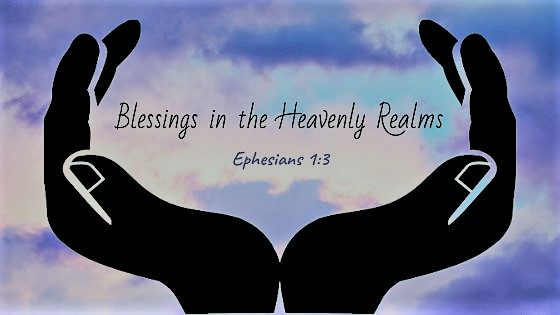

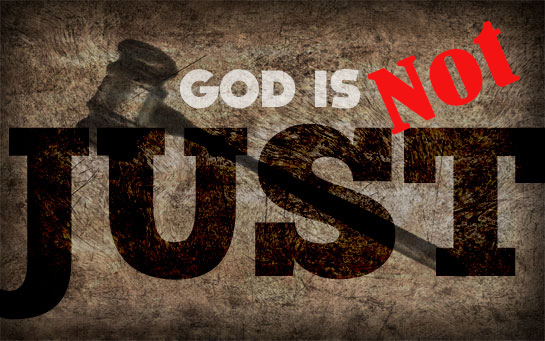
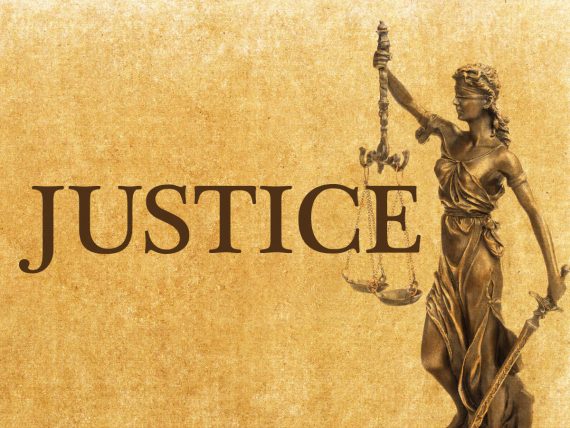



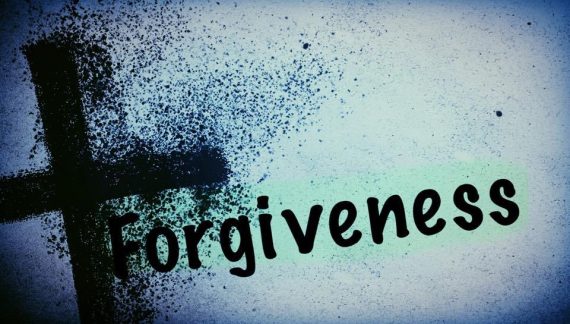





 This is actually a good thing. Just as a sign that says, “Do not walk on the grass” causes people to walk on the grass, if the Bible clearly stated what words constituted blasphemy against the Holy Spirit, this would only encourage people to say the words even more. So we don’t precisely know what this sin is.
This is actually a good thing. Just as a sign that says, “Do not walk on the grass” causes people to walk on the grass, if the Bible clearly stated what words constituted blasphemy against the Holy Spirit, this would only encourage people to say the words even more. So we don’t precisely know what this sin is. The word that is used for “forgiveness” throughout this passage is aphēsis. This means that whatever the sin of blasphemy against the Holy Spirit is, it also is under the charizomai forgiveness of God. In other words, whatever this sin is, it too is a sin that God has forgiven from eternity past (See
The word that is used for “forgiveness” throughout this passage is aphēsis. This means that whatever the sin of blasphemy against the Holy Spirit is, it also is under the charizomai forgiveness of God. In other words, whatever this sin is, it too is a sin that God has forgiven from eternity past (See
